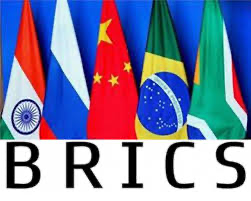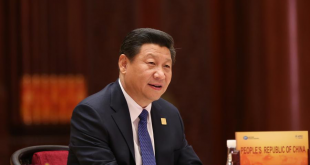Published: August 13,2023

The 15th BRICS summit, to be held in South Africa this month, is expected to make the global governance system fairer and counterbalance the dominance of Western countries, Carlos Maria Correa, executive director of the South Centre, told Xinhua on Wednesday.
The event’s agenda will be topped by efforts toward de-dollarization (reducing the U.S. dollar’s hegemony) and the expansion of the bloc, said Correa. The BRICS group of major emerging economies — Brazil, Russia, India, China and South Africa — will hold its 15th heads of state and government summit in Johannesburg between Aug. 22 and Aug. 24.
The summit will be the first in-person BRICS gathering since the COVID-19 pandemic. Altogether, the BRICS nations account for more than 40 percent of the world population and about 26 percent of the global economy. “One key issue for the BRICS to consider is global governance. There is a need to change the current system, which is unfair and asymmetric. In particular, the architecture of the financial system needs a major reform,” Correa said.
Leaders are also expected to discuss the BRICS group’s expansion by adding new members, including the admission criteria and the guiding principles. “Among my hopes is that the current BRICS group considers the incorporation of other countries,” Correa said. “This will be very important because it will give volume to the BRICS group.” “Of course, major economies, such those of India, Brazil and China, are there, but if other countries can also be incorporated, the political dimension of the BRICS will be improved significantly.” So far, over 20 countries have formally applied to become new BRICS members, including Saudi Arabia, Iran, the United Arab Emirates, Argentina, Indonesia, Egypt and Ethiopia. Correa said although the Group of Seven (G7) and the Group of 20 (G20) “still influence a lot the international developments”, the groups are “dominated by developed countries.” “But the BRICS play an important role in counterbalancing the G7 and G20. They look for solutions that are aligned with the interests of the other developing countries,” he said.
Asked how China’s Belt and Road Initiative (BRI) has contributed to China-Africa cooperation, Correa said: “There are so many projects that have been realized in the context of this initiative, it is very difficult to highlight just one. The contribution has been immense.” “The creation of infrastructure in African countries has been extremely important, such as new ports, electricity plants and water supply. This is one of the reasons why South-South cooperation has become so important in the last few years,” he said. The South Centre, headquartered in Geneva, Switzerland, is an intergovernmental organization of developing countries that helps developing countries to combine their efforts and expertise to promote their common interests in the international arena.
Xinhua
 Africa -China Review Africa -China Cooperation and Transformation
Africa -China Review Africa -China Cooperation and Transformation
